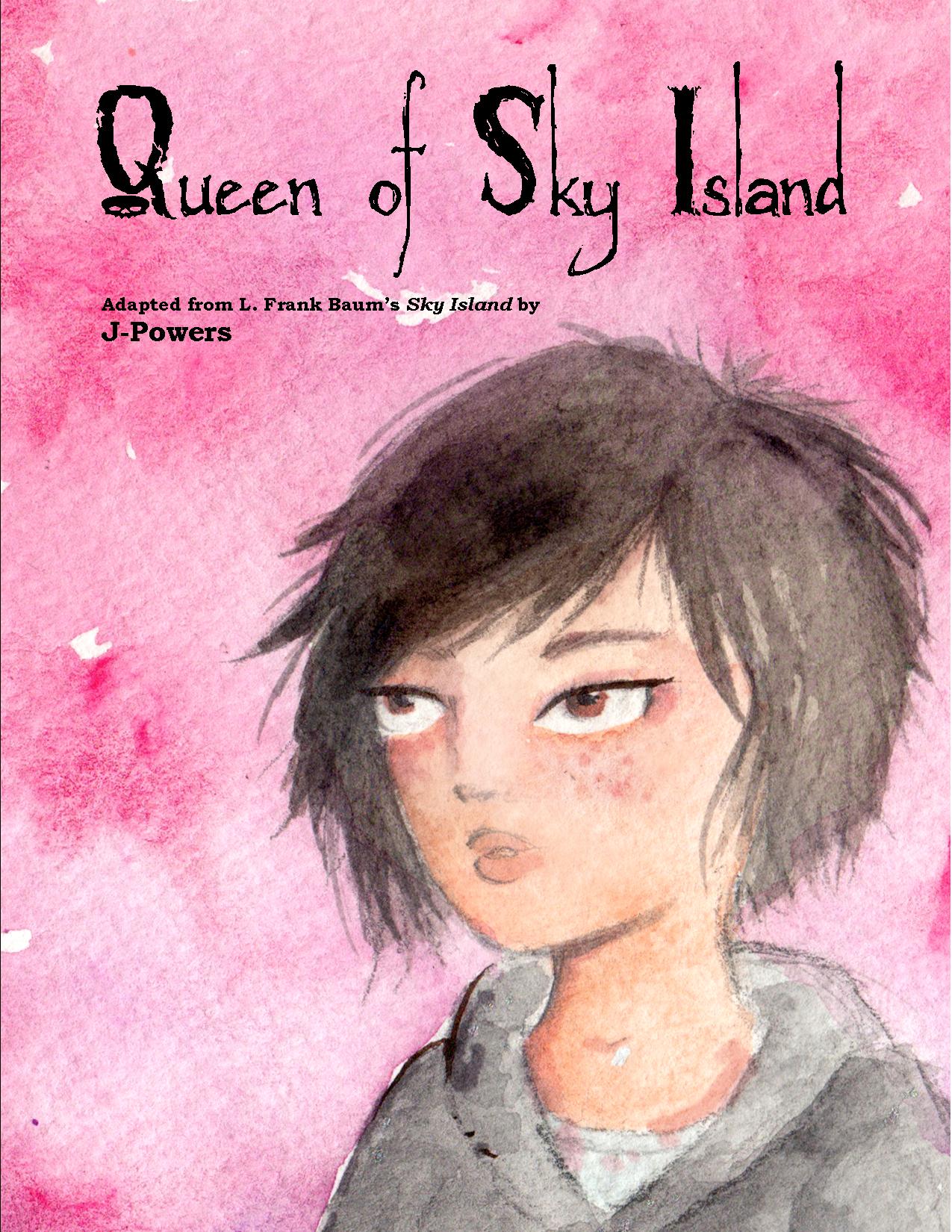An Adaptation: Better Than The Original? by John Powers
I am not an MG writer. My work is with the stage and movies. My usual arena for subject matter is recent American history and horror. In addition to creating original stories, I have adapted existing texts: speeches; books; transcripts. I had chosen these works because something within them resonated with me, and I felt it would resonate with others.
I am pretty ruthless as an adapter. My first task is to cut away what I consider the unnecessary narrative and to focus on the dramatic and emotional story. I then take a second pass at the text, which at this point is more like surgery. I am focused on creating and sustaining dramatic momentum, the effect of quickly “turning the page.” Once that is done, the challenge begins: focusing relentlessly on what resonates with today’s readers and viewers.
Who should care about the rabble-rousing speeches of Mary Jones (a.k.a. Mother Jones) during a West Virginia coal strike? What do we care about the efforts of poet Amy Lowell to promote the works of then little known writers Carl Sandberg and Robert Frost? Are the doubts and obstacles facing the novice Zane Grey of any importance to us in the age of Instagram and Snapchat?
These are questions that I have asked and answered in adapting existing texts for contemporary audiences. We cannot bring back great people who have passed, but by working closely with their texts we can breathe life into their creations. We can do it in a way that enables contemporary readers and viewers, particularly young ones, to emotionally connect with the values and ideas that these people fought to express.
For example, the Pentagon Papers is a frequently referenced document. But who knows anything about it? In working with the 7000-page text for a stage production, I grew to think that it is the most important work in the American language. I saw how it revealed the American character in depth, as it traced 23 years of a 30-year war. It was our Iliad. Yet who today would read a 7000-page document about a lost war?
In adapting the Pentagon Papers for readers, I sought to tell the story in the most concise and comprehensive manner. I drew excerpts from the four-volume Gravel edition of the Papers, and I grouped them into brief, distinct chapters. The result became a quick page-turning experience that a reader could consume in one or two sittings. In addition, I included links to on-line resources, such as articles and historical videos, to broaden their knowledge.
The key to finding success with the work, however, was in making it resonate with people, particularly young people. I did that by relating this previous “endless war” with the current one. In particular, I directed the adaptation toward millennials, whom I felt would be continually trying to make sense out of the situation we currently are in and would be asking could there ever be an end to it.
In another example, I discovered a little known work by L. Frank Baum when I was creating a solo performance for the stage about his life in early Hollywood. I was struck by the vivid imagery of the world and characters that he created in Sky Island, and I was surprised that it had not been exploited further.
Baum, an early feminist, considered it one of his best stories, and yet it had migrated into the land of forgotten treasures. I had my ideas of why: it was unnecessarily long; the main “earth” characters were no longer relatable; and there was no dramatic momentum.
In my adaptation, I titled the work Queen of Sky Island to give it a central focus and to assert Baum’s feminism; I wanted the reader to know from the outset whose journey this was and what was the desired goal. I also cut the length of the original text in half, eliminating tangential episodes that pulled focus away from the hero. Also, I also drew the hero as an assertive, impulsive girl striving to bring her broken family back together, and I surrounded her with new companions: an almost angel-like boy and a disabled veteran.
I left in place the vivid characters and the key actions that Baum envisioned on his island in the sky. Now, all the elements of the story are working to focus our attention on this young hero’s choices that put her and her companions at risk in this bizarre, unearthly world; and we witness her dig deep within herself to both save their situation and to bring lasting justice to this morally compromised world.
Without question, much of Queen of Sky Island is about visual imagery, but in my adaptation I have found something that will resonate with young readers; they will relate to this contemporary hero who at times is stubborn and violent, but who is also caring and heroic. She grows immensely during a brief course of time, from a selfish child to a selfless queen.
Creations age quickly in our new world, but there are invaluable elements within these creations that should be sought out like precious gems and placed in new jewelry settings. Adaptations are not better than the originals; they are different; they aim to preserve the best and carry it forward to resonate in the hearts and minds of new generations.
About the Author: John Powers (a.k.a. J-Powers) is the author of Queen of Sky Island (Amazon, Smashwords 2014, Audible 2016) and Pentagon Papers: Recently Abridged Edition for the Millennial Generation (Amazon, Smashwords 2012). He lives in the harbor area of Los Angeles with his wife and three millennial stepchildren. Find him at powerplayz.com
About the Book: Queen of Sky Island is a coming of age story charged with fantasy, heroic adventure, and vividly imagined new worlds. It is a 21st century adaptation of a story by L. Frank Baum, the creator of The Wonderful Wizard of Oz.
As reconceived and adapted by John Powers (a.k.a. J-Powers), Queen of Sky Island reveals a young girl, Tara, who in her determined search for her military father becomes trapped on an actual island in the sky where she leads one other worldly army against another. Tara’s faithful companions on this perilous adventure are Bobo, a brave young boy who possesses a flying umbrella, and Sgt. Rik, a resourceful disabled veteran who looks after Tara and her mother at their sea cliff cottage on the Earth. Through miscommunication, Tara and her companions arrive at Sky Island, a bizarre land divided between wildly different pink and blue territories. They are unfairly taken prisoner by the Boolooroo, the selfish and mean-spirited leader of the Blue people. Facing a horrible punishment known as “patching,” Tara and her companions escape and run for a thick fog bank that separates the two territories. With help from an unusual creature, they cross through the dense fog, and they are taken to the queen of the Pinkies. After surviving a near fatal test in this new realm, Tara shows what she is made of and rises to lead the Pinkies against the Blues in an attempt to defeat the Boolooroo.
Thank you, John, for this thought-provoking post!





Thank you, John, for the inspiring, detailed piece – Meia
You are welcome, Meia! In turn, my thanks go to Ricki and Kellee for providing me the opportunity to speak on their excellent, resourceful, and “sticky” site.